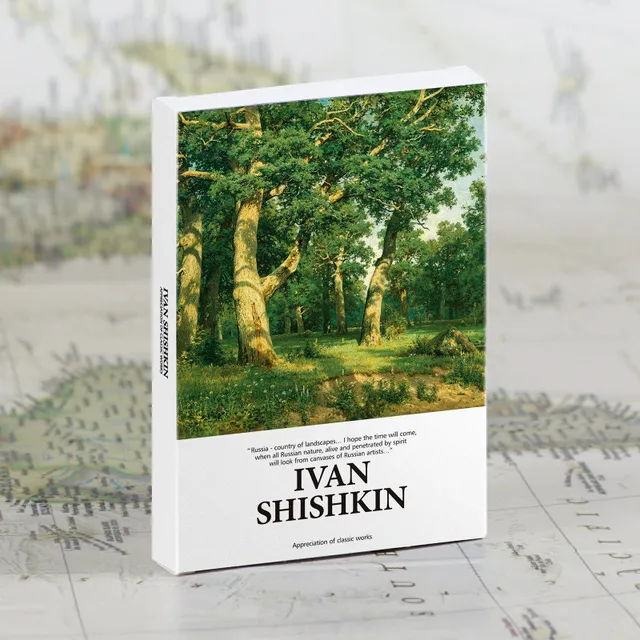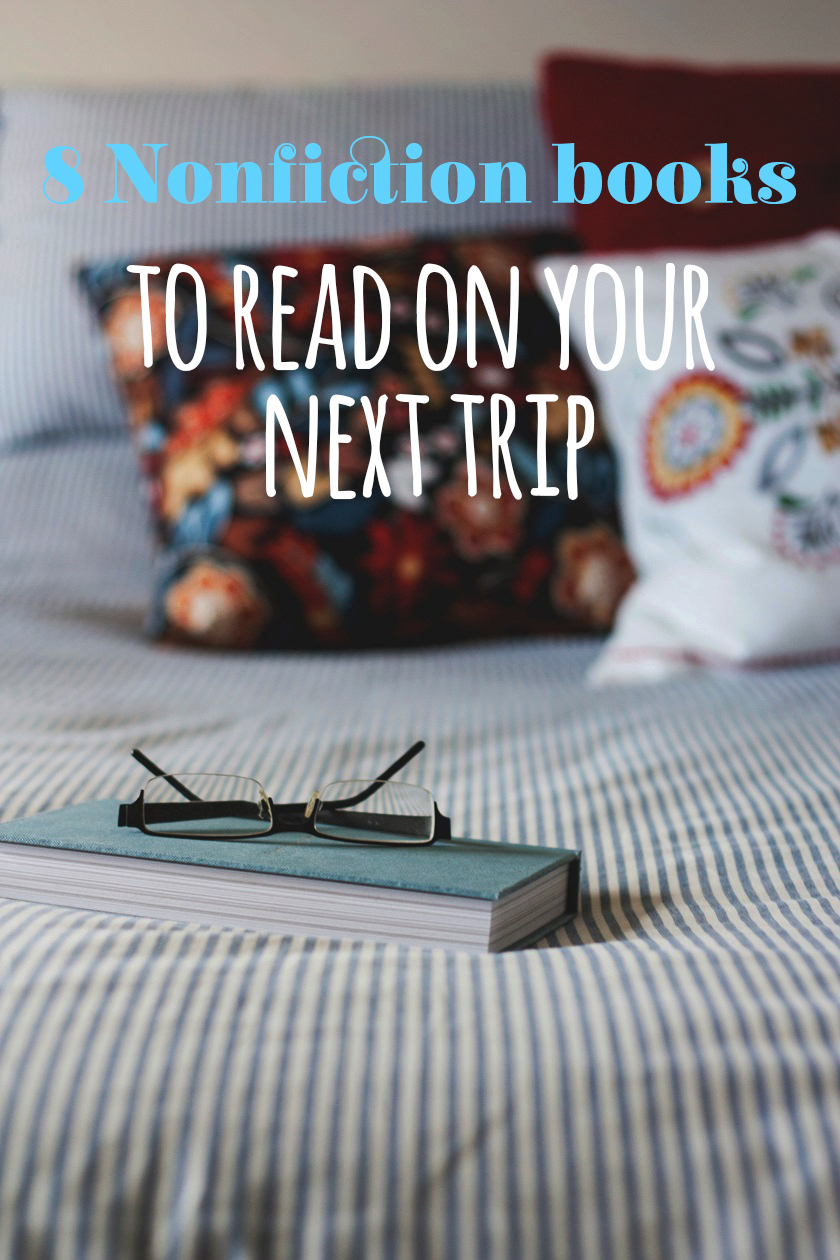
If there’s anything I love more than being outside and exploring the world, it’s . Ever since I could make it all the way through that first Harry Potter book, back when I was in elementary school, I’ve been hooked. Of course, being head over heels in love with books means that every free second is spent with a nose buried deep in between pages anyways – but maybe even more so when traveling. The only question left to answer: Which book?
Well, I have some suggestions for you! While I used to read mostly fiction, I’ve started becoming addicted to good, informative nonfiction books as well. Here are a few of my favorites – so maybe next time you’re on the road and have some time to yourself, you’ll enjoy one of these just as much as I did when I first read them…
Collapse: How Societies Choose To Fail Or Succeed
By Jared Diamond
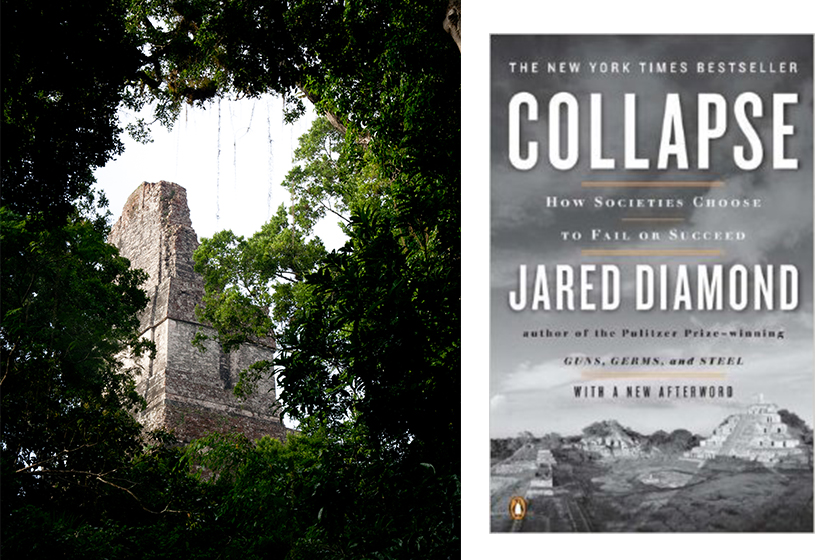
A little over two years ago, I was traveling through with two other girls. While the big idea was to go from El Salvador to Belize, a big junk of our trip was actually spent in , where we visited quite a few ancient sites. In Tikal, one of the guides mentioned this book: Collapse. He really only added it as an after-thought, but the name struck something in me.
I bought it right when I got back home and read through it in what felt like just a few hours. In it, Jared Diamond explains the five most important factors for societal collapse in both the ancient and the modern world, and then goes on to show his hypothesis with the examples of several fallen empires or struggling states. From the Greenland Norse or the Easter Island all the way to modern-day and , each chapter explains a different case, illustrating the five factors. He also goes into quite a few examples of success stories, where countries have been able to steer away from their impending collapse – and are just two of those cases.
Bottom line: Read this if you want to know more about the (self-)destructive powers hidden in our world, both in the past and now.
The Power of Habit: Why We Do What We Do In Life And Business
By Charles Duhigg
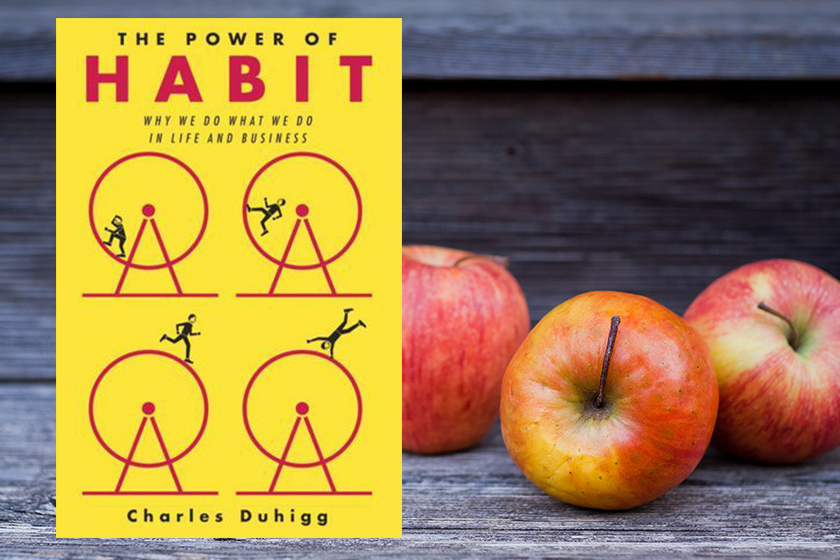
I’d very much like to be the best version of myself, and judging by the number of TED Talks, books, and articles about it, I’m far from alone in this. Building good habits is a big part of being successful, whatever that may mean to you – but starting and keeping them can be so, so hard. Charles Duhigg’s book The Power of Habit offers some valuable insights into how our bodies and minds build and keep habits. The main mechanism is actually very simple: you are presented with a cue (say, a regular 10AM break in your work routine), which leads to a reaction on your part (like having a chocolate bar), which gives you a reward (happiness, or a sugar-induced activity high). This is what Duhigg calls “The Habit Loop”. He then goes on to explain how to replace the reaction (to, say, eating an apple instead) and stick with the new habit.
Bottom line: Read this if you want to understand behavioral patterns in your life – and how to change them.
Freakonomics: A Rogue Economist Explores The Hidden Side Of Everything
By Steven Lewitt and Stephen J. Dubner
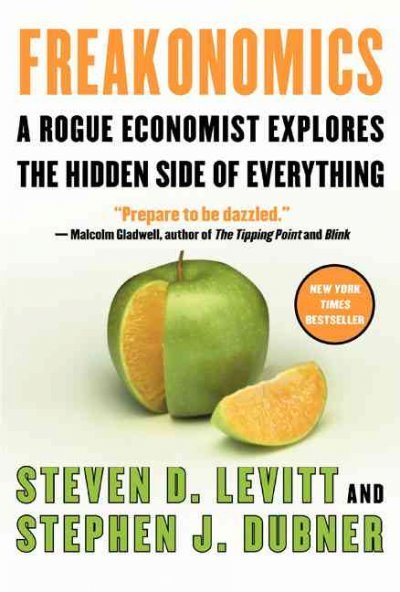
When I first started university, I enrolled for a business program – and hated every second of it. For the longest time afterwards, I thought that I just disliked everything that had to do with business and economics, but halfway into my second degree program (the one I ended up actually finishing), I found myself taking more and more economics, at some point even choosing an economics minor. Turns out, I don’t hate the field – I just hated the business students around me whose only goal in life was to drive a Porsche.
Thank goodness I figured that one out – because economics are awesome, and if you’re not already convinced, Freakonomics is the book to prove it to you. I frequently recommend it to basically everyone around me – Lewitt and Dubner explain in easy and simple terms why economics are crazy cool, and how they can be applied to areas that are not usually on the typical economist’s radar. The book has often been described as being a mix of pop culture and economics, and seriously, what more could you possibly look for in a book on the subject? If you’d like to understand the role abortion rights have played in reducing crime rates, or what the effects of naming your kid Kevin are, this is the book for you.
Bottom line: Read this if you want to see how awesome economics can be (and to find out in which non-traditional circumstances the science can be useful, too).
Poor Economics: A Radical Re-Thinking Of The Way To Fight Poverty
By Abhijit Banerjee and Esther Duflo
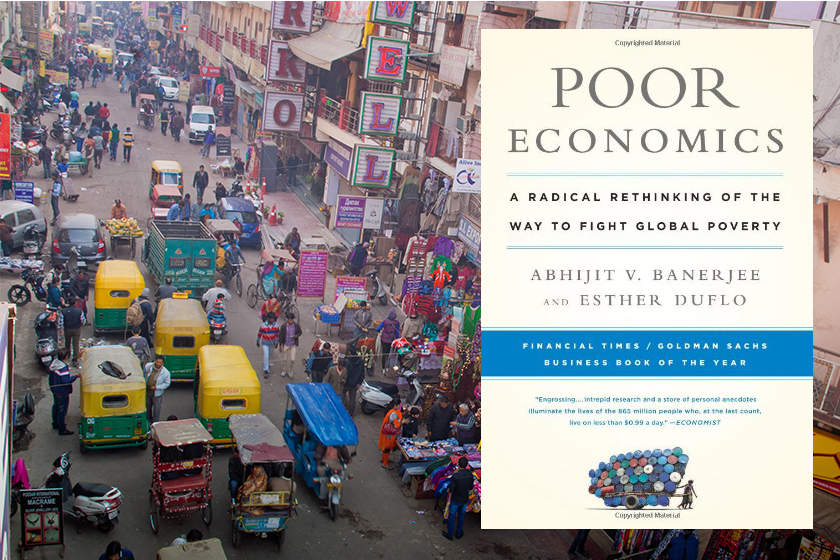
Since we’re already talking about the beautiful science that is economics, let’s throw in one more book about it. The main idea of Poor Economics is that there is no one-size-fits-all solution to fighting poverty in the world – rather, the authors look at specific situations across five continents to find out why the poor behave the way they do, and how to help them find a way out of poverty. Why do the poor in regions with malaria not use mosquito nets when the benefits of not being infected are so great? Why has microcredit not been the solution to end all poverty? Why do the poor often invest in seemingly unnecessary items, such as a TV, instead of buying healthier or more food for their families? The findings, collected in what has to have been a thousand years of work doing nothing but randomized controlled trials all over the world, are presented with anecdotes and stories from people who live on less than 99 cents a day, making the book a captivating and enjoyable read.
Poor Economics is especially interesting if you yourself live in or have been to countries where poverty rates are high – besides teaching you a lot about how global development works, it will put your life and your travels into a whole new perspective.
Bottom line: Read this if you want to get a deeper insight into the lives of people who live well below the poverty line, and to find out about ways to help.
Nudge: Improving Decisions About Health, Wealth and Happiness
By Richard H. Thaler and Cass R. Sunstein
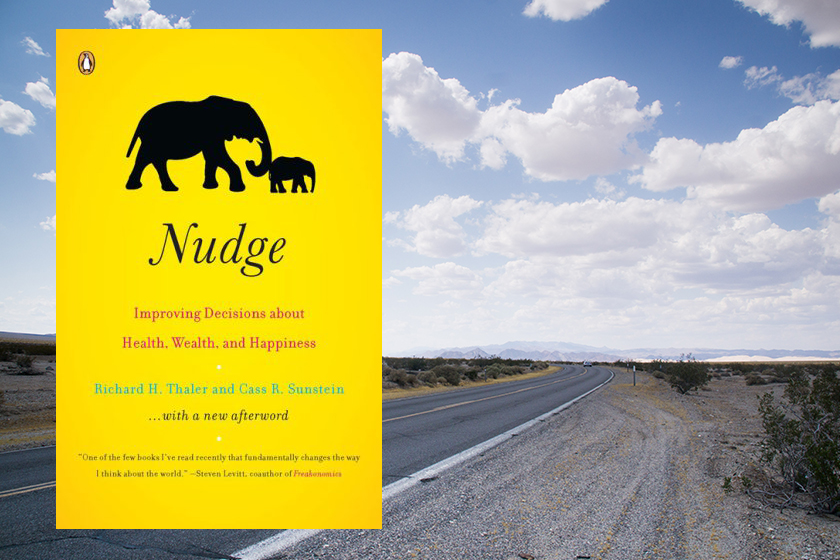
While I’m very much interested in the topic, it’s been hard to come across good books about social policies. This one is an exception – Nudge looks at how states can design social policies in order to improve the lives of their citizens. It hasn’t been very well received in the U.S., where it is largely believed that the state should not meddle with the individual’s life, but if you read it in a more socialist context (as is the case in , for example), the theses definitely make a lot of sense.
The general idea is that if you design the right choice architecture around your social policies, you can ‘nudge’ people in the right direction (granted, defining what this “right direction” actually is, is a different story entirely). Thaler and Sunstein identify several fallacies and biases that lead people to make choices that are suboptimal. By working around these fallacies, policy makers can ensure that people automatically choose what is best for them – like making retirement savings the default plan for employees, instead of having them actively have to opt-in. Nudge is definitely controversial – I personally agree with the authors, but even if you don’t, it’s a good read to understand the way social policies are designed a bit better.
Bottom line: Read this if you want to learn about choice architecture in social policies, and how it can greatly affect individual people’s choices in life.
Thinking, Fast and Slow
By Daniel Kahnemann
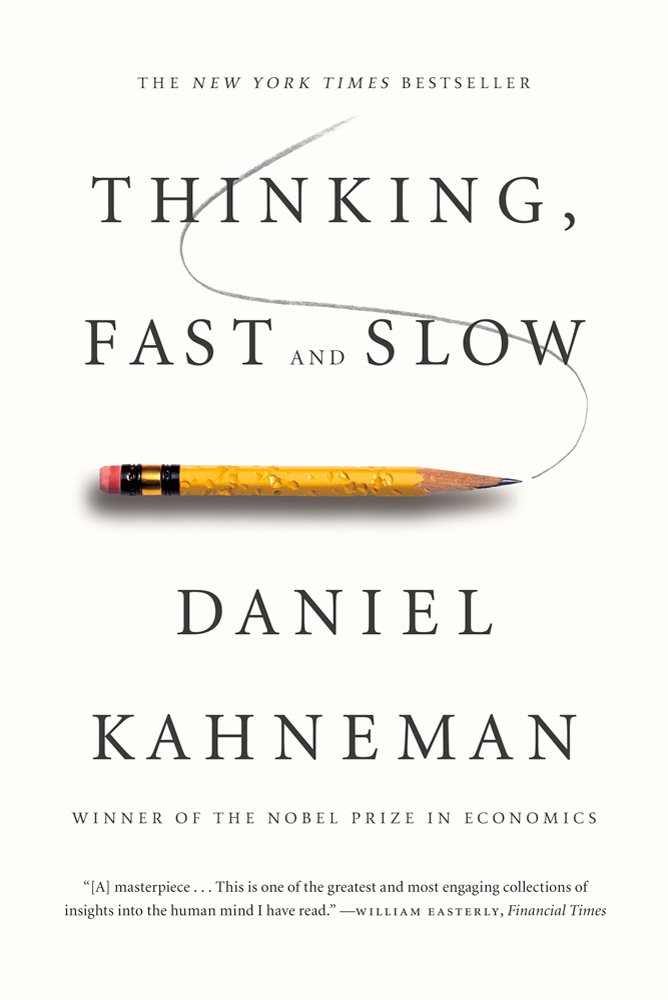
Daniel Kahnemann’s book is all about how we, as humans, think and make decisions. The Nobel Prize laureate proposes that there are two systems working within us, figuratively speaking, of course: System 1 is quick and intuitive, whereas System 2 works more slowly, but more deliberately and diligently. Our brain mostly runs on System 1 – when faced with a difficult and challenging situation, we switch on System 2 to be able to think more clearly and rationally. Kahnemann shows, using an impressive amount of research, that because we use System 1 so often and are frequently too lazy to switch to System 2, we make logical errors in our thinking and decision-making. He identifies biases and shows with a number of sample questions how easy it is to be fooled by our System 1 into basing our choices on them.
My second favorite part of reading this book was by far the opportunities it gave me to check myself – am I really so reluctant to use my System 2? Even better was asking everyone around me the sample questions Kahnemann provides and watch them fail. To be fair, I couldn’t solve them correctly any more than they could, so I guess we are all just happily running on System 1.
Bottom line: Read this if you’re interested in how we make decisions, and why it’s sometimes almost impossible to actually think rationally.
P.S.: If you can’t get enough of research that shows that actually, we make the silliest decisions sometimes, you might want to read Predictably Irrational by Dan Ariely as well. It’s fascinating.
Danubia: A Personal History Of Habsburg Europe
By Simon Winder
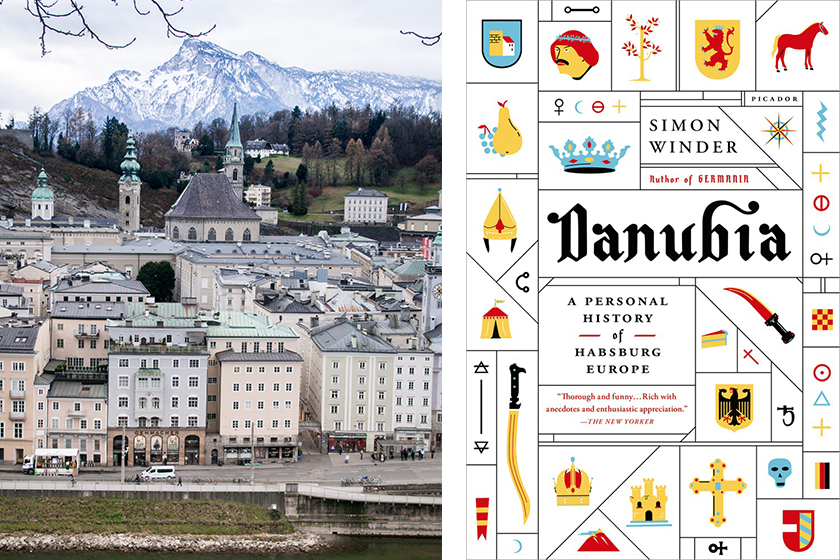
Back when I was in high school, history seemed like a semi-important, very bothersome subject to me. I always figured it was good to know where we came from, but I never understood why learning all those dates by heart and trying not to mistake one confusingly-named ruler for the next was useful.
Fast forward almost ten years later, and I couldn’t think any differently. History is one of my favorite disciplines now – I love drawing connections between historical events, understanding the intricate relations between different points in time, and seeing the effects of decisions long past in today’s world. While I became pretty versed in European history, I always felt like I didn’t know enough about the inner workings of the Habsburg empire – until I read Danubia. Simon Winder tells the story of this giant European power like it’s a family anecdote he’s sharing over dinner with friends, and while the many names of the many different dudes who held power of much of the continent still do get confusing at times, the book gives a brilliant overview of the Habsburgs.
Bottom line: Read this if you want to get to understand Europe better – and how a large part of it has been shaped by this one family that was in power for centuries.
Eating Animals
By Jonathan Safran Foer
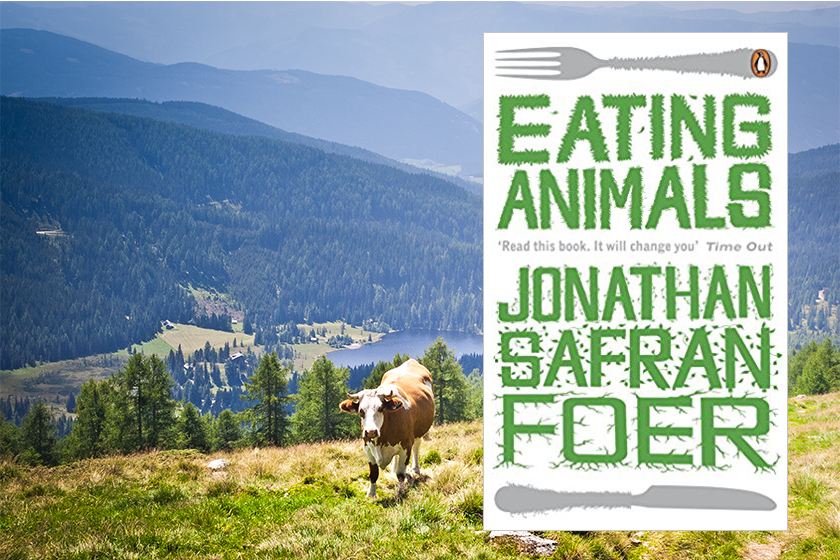
Clearly, if the above list is any indication, my preference in nonfiction books lies in the social sciences. This last one, Eating Animals, strays away from this field a little and delves deeper into nutritional science, biology, and how our modern food supply is organized. In what is now basically any vegan or vegetarian’s bible, Jonathan Safran Foer shows everything that is wrong with the modern-day meat and dairy production. I was already a vegetarian when I read it, thinking very critically about how our meat and dairy are produced, but it made me question even more aspects of the way we produce and consume much of our food. I ended up lending this book to basically anyone who would take it, hoping it would affect them as profoundly as it did me. Read it and you’ll see for yourself.
Bottom line: Read this if you’re interested in how our meat and dairy are produced, and what this means for human health.
To be honest, it was a bit hard to limit myself to only 8 books to recommend, since there are so many great others out there. Much of which I still need to read! Do you have any suggestions, or favorite nonfiction books to share? I’m always happy to add some to my To Read list. Can’t wait to find out what your favorites are!




















